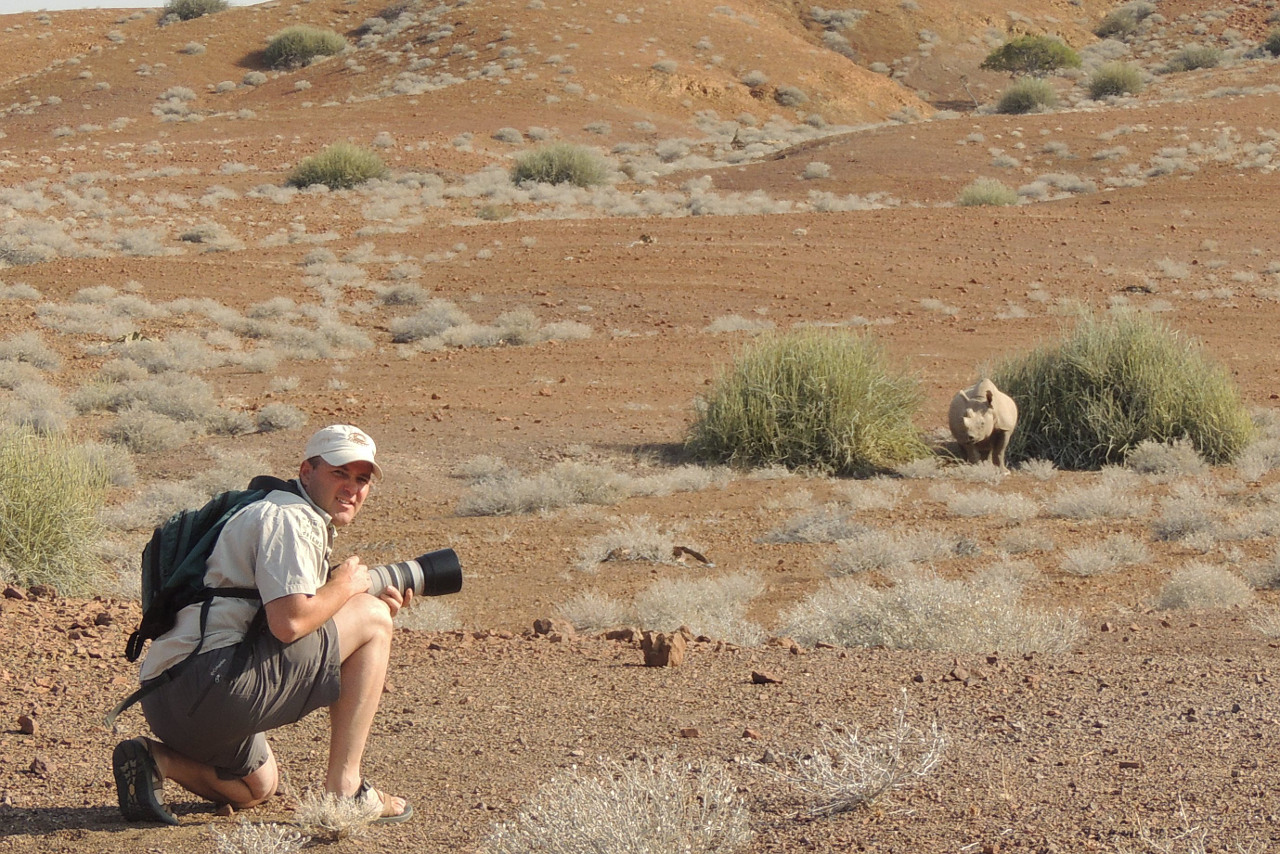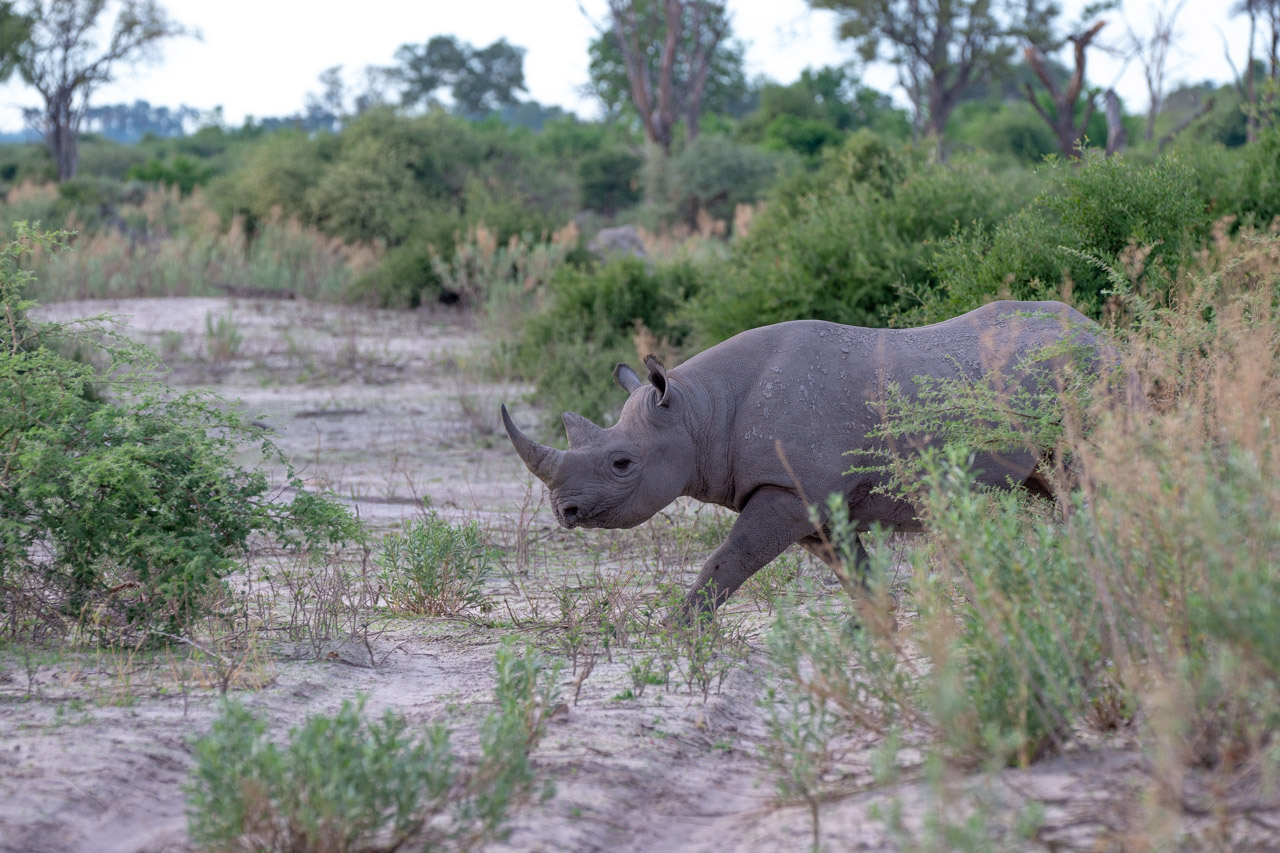Rhino Rangers, Namibia
2021 - Rhino Rangers Namibia - donation of USD 15,000
2020 was a thoroughly challenging year due to persistent drought, the COVID-induced tourism collapse and the loss of 4 rhinos to poaching. 2021, on the other hand, presents a different picture.
While rainfall remained sparse, the resilient rhinos of Namibia still managed to successfully produce 7 new rhino calves. The number of kilometers traveled on foot by rhino rangers increased substantially in 2021. If we add up all the kilometers each ranger walked during the year, the total distance covered is over 80,000 kilometers, roughly twice around the world. Most importantly, all of these efforts helped record yet another year of ZERO poaching.
A number of new and exciting projects were launched in 2021. The new Ranger Welfare Program included providing basic first aid training to 34 rangers. Further, a physician will conduct bi-annual visits to ensure everyone has an opportunity to see a doctor. Lastly, the Rhino Ranger Programme expanded beyond the northwest into an entirely new landscape and culture with the San community of the Nyae Nyae Conservancy on Namibia's eastern border with Botswana. The first step was to provide training to 20 candidate rangers, of which the top 5 were selected to become the first Nyae Nyae Conservancy Rhino Ranger cohort.
In 2021, the Rhino Pride Campaign continued to be challenging given the COVID restrictions on large gatherings and group activities. However, the following highlights from 2021 were recorded: A second Annual Ranger Award Ceremony with participation from the US Ambassador, WWF Namibia Director and USAID Chief of Parties; a series of additional 6 Reading with Rangers events that took over 50 youth on patrol; and last but not least the launch of the first Rhino Cup Youth Champions League - upgrading 12 soccer fields, procuring full kits and training equipment for 16 teams (320 youth), and developing a new Women's Clinic for girls to promote interest in soccer for females under 13. The league is scheduled to launch in April 2022.
From day one, SwissAfrican Foundation has been convinced that the work of Save The Rhino Trust is an exemplary success, essential for the protection of the last black rhinos in Southern Africa. We are happy to be able to continue to provide some of the needed support.
More success stories related to this project
Our partner
Jeff Muntifering - Save the Rhino Trust
Our local partner is the Save the Rhino Trust (SRT). This organisation has been working to protect rhinos in north-western Namibia for over thirty years, and it is largely thanks to their dedication that stocks have stabilised and recovered. The Save the Rhino Trust works closely with local communities, the Ministry of Environment (MET) and other non-governmental organisations (NGOs). Approximately 75% of SRT’s efforts are allocated to field patrolling and monitoring. Everything depends on this work: without accurate information about the rhino population’s performance trends, SRT cannot make decisions about regional tourism, Ecological Carrying Capacity, make recommendations to MET about the target animals to be translocated etc. Monitoring the rhinos continues to be the prime activity. Its long existence reflects an exceptional relationship of mutual trust between its partners, a highly successful commitment to the rhino, and a deep-rooted understanding of sustainable tourism in the region for the benefit of the animal world.

The organisation’s most important task is to monitor and observe the rhino. This scientific work offers essential insight into the rhino's way of life and forms the basis for the sustainable development of tourism and inclusion of the local community.
Born and raised in Minnesota (USA), Dr. Jeff Muntifering has spent the last 15 years of his professional career designing and delivering applied research, training and community-based programs to advance conservation practice while living and working out of remote field stations around the world. Currently, his time is primarily spent between Namibia and China where his work with local communities, government and private sector tourism takes a multi-disciplinary approach to improve conservation efforts for two critically endangered species, the Black Rhino and Przewalski’s Horse.
In Namibia, Jeff has worked with Save the Rhino Trust, a highly respected local Namibian organization, since 2003. His applied research on rhino biology, ecology, eco-tourism and incentive-based, community-led approaches to rhino conservation over the past 15 years has helped inform a variety of innovative management policies including community-based monitoring programs, eco-tourism protocols and re-introduction strategies. He also co-founded and currently coordinates the Conservancy Rhino Ranger Incentive Program, a highly successful community-based rhino conservation program that has been showcased in multiple global case studies. Jeff has also spent significant time in China since 2001 where he works closely with the State Forestry Administration and Beijing Forestry University on high profile projects including South China tiger and Przewalski’s horse recovery efforts. Here he hopes to utilize his Namibia experience to advance science-based management, community-based monitoring and eco-tourism approaches in a Chinese context.
He has also conducted field research in Alaska, Canada, Minnesota, Ecuador, Honduras and South Africa primarily targeting large carnivore conservation and restoration. He has published more than a dozen scientific articles, book chapters, and has provided numerous presentations to both academic and general audiences.
He lives and works primarily out of a remote field camp in north-west Namibia known as World’s End with his wife Basilia and their 2 children.
CV Dr. Jeff MuntiferingLearn more about these animals

